Chloe Liese writes romances reflecting her belief that everyone deserves a love story. Her stories pack a punch of heat, heart, and humor, and often feature characters who are neurodivergent like herself. When not dreaming up her next book, Chloe spends her time wandering in nature, playing soccer, and most happily at home with her family and mischievous cats.
I had the opportunity to interview Chloe, which you can read below.
First of all, welcome to Geeks OUT! Could you tell us a little about yourself?
I’m Chloe Liese, author of the Bergman Brothers and Wilmot Sisters series, and I write romances reflecting my belief that everyone deserves a love story. My books are humorous, hope-filled, and slow-burn hot, and they feature characters with human realities who I think deserve more prominence in romance novels, such as neurodivergence, chronic illnesses, disabilities, complex mental health journeys, and nuanced sexual identities. I write stories that allow my readers the joyful escape of a romance novel while also affirming my conviction that the most beautiful love stories are the ones in which real people with real lives and bodies and minds experience emotional safety, rich intimacy, and vibrant, loving happily ever afters.
What can you tell us about your latest book, Better Hate Than Never? What was the inspiration for this story?
Better Hate than Never, the second in my Wilmot Sisters series, reimagines Shakespeare’s The Taming of the Shrew as a feminist, sexy romance in which two childhood enemies overcome their past animosity and fall in love through the hard, healing work of vulnerability, honesty, and trust. The book challenges the idea of the “shrew”—a derogatory term wielded against vocal, bold, impassioned women—and explores characters living with neurodivergence (ADHD) and a chronic illness (migraines). I think this story balances the angst of longing for someone you don’t believe you should—or deserve—to love, and the fiery, delicious tension of the enemies to lovers trope. Finally, the book has some really fun nods to the iconic rom-com 10 Things I Hate About You, which is another reimagining of The Taming of the Shrew, and one of my all-time favorite films.
From the description of your newest book, readers will find out the heroine Kate is diagnosed with ADHD and identifies as demisexual. If you wouldn’t mind, could you tell us about the queer representation featured in this book?
As a neurodivergent queer woman myself, it’s important to me to write characters who embody those identities and to explore the vulnerability that many who identify this way feel, asking themselves, Who do I trust with my truth? Who do I trust to validate and see and love me for who I show them I am? Kate’s neurodivergence is something she’s learned to love in a vacuum, on her own, but not in relationships; she hasn’t felt seen and loved well for the person she is and all the ways that having ADHD bears out in her life, so I wanted to explore how she opens up to the people she loves about the ways she needs to feel seen and affirmed better, how vulnerable that risk is but how rewarding it is when the people who love her hear her and strive to love her in a way that shows her just how much. Her sexuality, like mine—demisexual—is another area in which she’s historically felt frustration and isolation in how poorly it’s been understood and received, after hurtful, ignorant responses and her deepening (and understandable) reluctance to open up to people about it. As her relationship to Christopher deepens, it was very important to me to show her wrestling with her fear of rejection but ultimately her bravery in trusting Christopher, to ensure his response to her was loving, curious to know more, eager to make her feel safe and seen, to show how their intimacy grows because of the trust and care that ensues from that conversation.
Looking from the body of your work, mental health and neurodivergent/ disability representation is a big part of your writing. If you feel comfortable, could you talk a little about what writing about these concepts means to you?
Romance is such a joyful, safe genre—it focuses on the beauty of relationships, the hope of happy endings, and celebrates all the many nuanced, beautiful ways we can experience intimacy, connection, and love. It’s important to me to write stories with characters navigating mental health struggles, who are neurodivergent and disabled and chronically ill, because, as a neurodivergent person with chronic conditions, I know personally how lonely it is to pick up romance novel after romance novel and see none of those realities being lovingly, affirmingly portrayed. I aim to write stories that challenge a very culturally engrained ableist stigma that asserts we have to look or live or function a certain way, have a certain number in our bank account, be in the pinnacle of health, to experience love and sex and be desired and live fulfilling, happy existences. My hope and belief is that anyone can find something to relate to in my books, even if they aren’t chronically ill or neurodivergent or disabled or experiencing mental health difficulties, because the truth is it’s human to hide our soft spots and our fears, and all of us carry with us some part of ourselves we believe is unlovable. My goal is for my readers—no matter how little or much they relate to the identities or diagnoses or experiences of my characters—to close my books feeling healed and encouraged and reminded that true love loves all of us, not just our easy, smooth parts, but the rough and rocky corners, too.
As a writer, what drew you to the art of storytelling, specifically romantic fiction?
During an especially anxious season of my life, I was very drawn toward the guaranteed happy ending of romantic fiction, and—as is generally the case for me, when I find something I like—I immersed myself in the genre, devouring hundreds of romance novels. After quite a lot of reading, I started feeling this loneliness I’ve mentioned, this ache to see people like me and the people in my life and my community, portrayed authentically and positively in characters who were wise and witty and sexy and kind and capable of rich, beautiful love stories. At some point, I came upon Toni Morrison’s wisdom, “If there’s a book that you want to read, but it hasn’t been written yet, then you must write it,” and it felt like a sign to take the leap and start writing the kinds of stories I wanted to read, so I did. It bears emphasizing that I by no means think I am the only one who writes romances with realistic characters like this; I just struggled to find them back when I was first reading romance and started writing. I am beyond grateful to have since found authors who do that beautifully and intentionally, who inspire me as a storyteller and who are doing incredible things in the genre—Helen Hoang, Talia Hibbert, Kennedy Ryan, and Alison Cochrun, to name a few—who I admire immensely for their talent and dedication to compassionate, inclusive romantic storytelling.
How would you describe your writing process?
It always starts with a kernel—a character whose growth arc comes to me vividly, a first chapter unfolds in my imagination like a movie’s opening scene, a bit of dialogue between two people whose dynamic and tropes and connection demands to be written down the moment it materializes in my mind. After that, I examine what representational aspects I want to portray. If they’re outside my lived experience, I connect with authenticity sources—friends and readers who identify with those experiences—interview them comprehensively on what matters to them to see in a romance novel with a character living with an identity/diagnosis like theirs and on the nuances of their routines and relationships and their identity/diagnosis’ impact on those aspects of their lives. Then I write the story, revise, and get it to a place where I feel the narrative is solidified, then I put it in front of my authenticity sources for critique to ensure representational accuracy. Once I’ve addressed any inaccuracies and my authenticity sources feel good about the story from a representational standpoint, I put it in front of other sensitivity and critique readers for more feedback to ensure I’ve written a story we all feel is fun, joyful, thoughtful, affirming, and compassionate. When I write from my own experience, I do essentially the same thing with myself as an authenticity source—ask myself what matters to affirm and authentically portray in my story—and then I put it in front of others with my identity as well as sensitivity and critique readers.
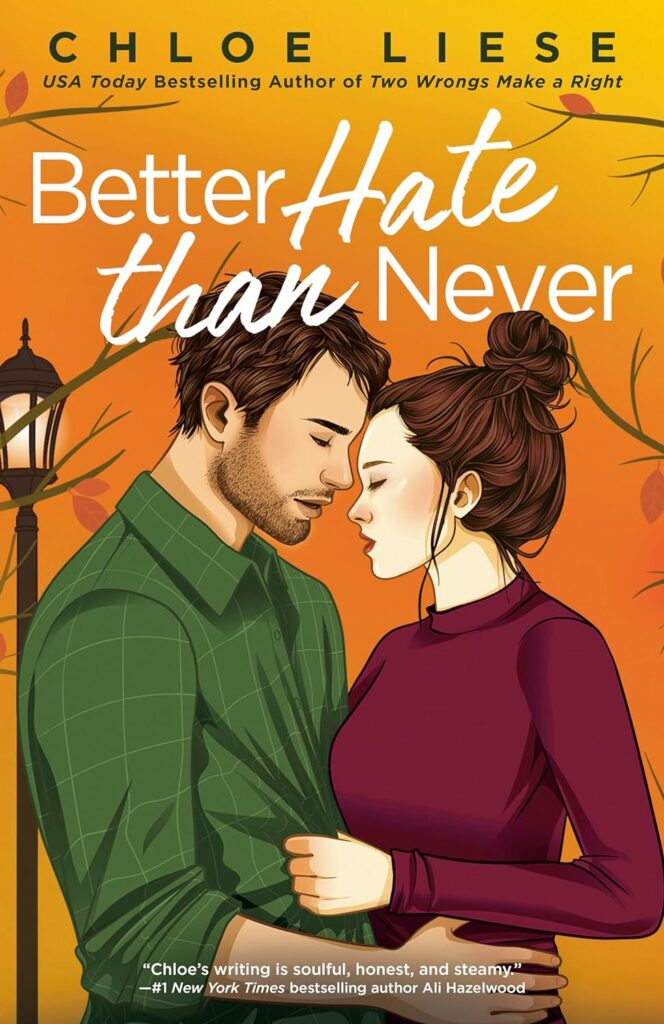
Many authors would say one of the most challenging parts of writing a book is finishing one. What strategies would you say helped you accomplish this?
I find finishing a book often the easiest part! Often, it’s the starting for me that I get hung up on. If I don’t have a clear vision yet for how the story kicks off or who exactly my characters are or what journey they need to take, I have to stay patient and try out ideas and wait until I get that creative greenlight inside myself that lets me know I’m ready to go. Sometimes, though, even after a solid start, with the book plotted out into beats, guided by my characters’ intended growth arcs and overall journeys, I get hung up in the first act of the book (in my plotting, I tend to break my books structurally into three acts), knowing if I take a wrong turn early in the novel, I’ll have lots of rewriting ahead of me when I realize I’ve ended up somewhere I didn’t want to. Having written ten novels now, I am very familiar with how exhausting and frustrating it can be to realize I’ve taken a wrong turn and have to go back and revise extensively. When that first act potential wrong turn fear hits, I’ve started to work on being patient and pausing, going back and reading a few chapters preceding the point at which I’m unsure which way to turn. I’m still learning how to trust and listen to myself as a storyteller, and I’d say that’s honestly the biggest challenge, but I think I’m getting better with each book.
Growing up, were there any stories in which you felt touched by/ or reflected in? Are there any like that now?
I didn’t know I was neurodivergent until I was 30. I always felt a bit odd and different, like I was outside plexiglass looking into the rest of the world, especially complex social situations. So as a child, I was drawn to stories about kids who were loners and dreamers, who were roughing it on their own, lost in their own imaginations—Anne of Green Gables, pretty much any middle grade Karen Cushman novel but especially Catherine Called Birdy and The Ballad of Lucy Whipple, The Boxcar Children, Miss Rumphius, the Dear America diary series, to name a few. Stories that now make me feel most seen are Helen Hoang’s, Talia Hibbert’s, and Alison Cochrun’s. I am so thankful for their stories and the safe havens they’ve given me.
What are some of your favorite elements of writing? What do you consider some of the most frustrating and/or challenging?
My favorite part of writing is how real these characters and their worlds become, how touching and healing it can be to experience the love and kindness and goodness they show each other. I’d also say another favorite element of writing is the sheer rush of writing something (that at least, to me feels) beautiful—a turn of phrase that sparkles like magic, a single sentence that written straight from my heart. The most frustrating or challenging part is that “wrong turn” fear of mine—when I get pulled out of the joy of being immersed in my story world and have to wrestle with my doubts about my craft and the direction I’m taking.
What advice might you have to give for other aspiring writers?
Write what you believe in. Write what brings you joy. Write what you want to read. Ask yourself why, what, and how all the time—Why am I telling this story? Why am I writing this character? Why does this couple make sense in a way other potential pairings in their story world don’t? What do my characters need to learn? How do they grow as individuals and together? How do their past and present and the future I have planned for them reflect in their voice, their worldview, their fears, their hopes, their journey? These questions make a story so much stronger; a book can have an engaging hook, a snappy premise, but fall flat when its plot, dialogue, and characters’ behaviors don’t unfold in a way that feels realistically, compellingly motivated by the nuances of the lead characters and their growth journey.
Are there any other projects you are working on and at liberty to speak about?
I’m working on the third and final Wilmot Sister book, whose first chapter I’m very excited is in finished copies of Better Hate than Never—readers get a really fun sneak peek at Juliet’s story! I can’t say much about it, only that I think it’s really swoony and tender and it’s bringing me a lot of joy. I’m also wrapping up work on the last Bergman Brothers novel, Viggo’s story, Only and Forever, which is a roommance about a starry-eyed optimistic romance reader living with a cynical thriller writer who pair up to get each other through a tough professional season and end up falling hopelessly in love.
Finally, what books, particularly books with queer and/or disabled/neurodivergent representation, would you recommend to the readers of Geeks OUT?
So many, but here are some, to name just a few:
- Helen Hoang’s The Kiss Quotient series
- Alison Cochrun’s The Charm Offensive and Kiss Her Once for Me
- Tia Williams’ Seven Days in June
- Talia Hibbert’s Brown Sisters series
- Timothy Janovsky’s You’re a Mean One, Matthew Prince
- Anita Kelly’s Something Wild & Wonderful
- Rachel Lynn Solomon’s Weather Girl
- India Holton’s Dangerous Damsels series

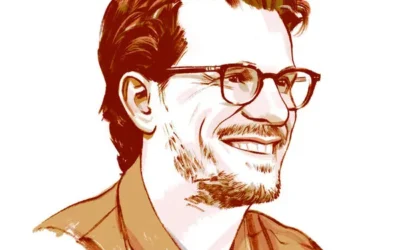
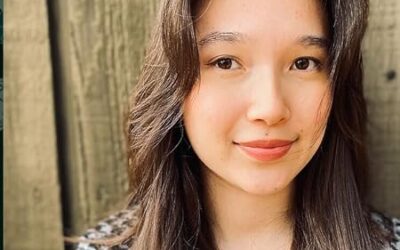
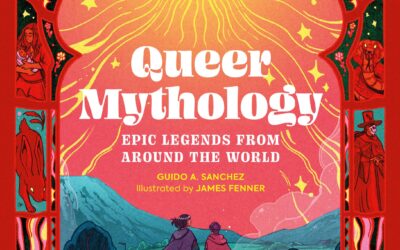
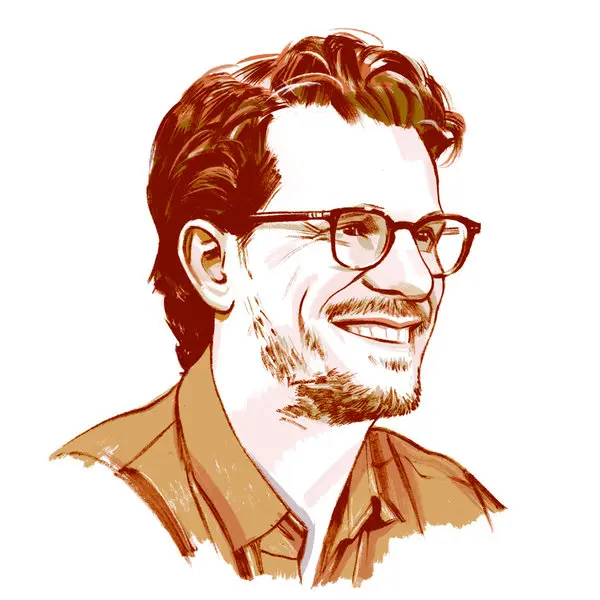
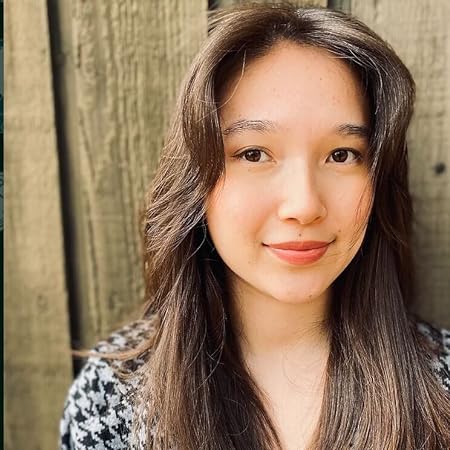
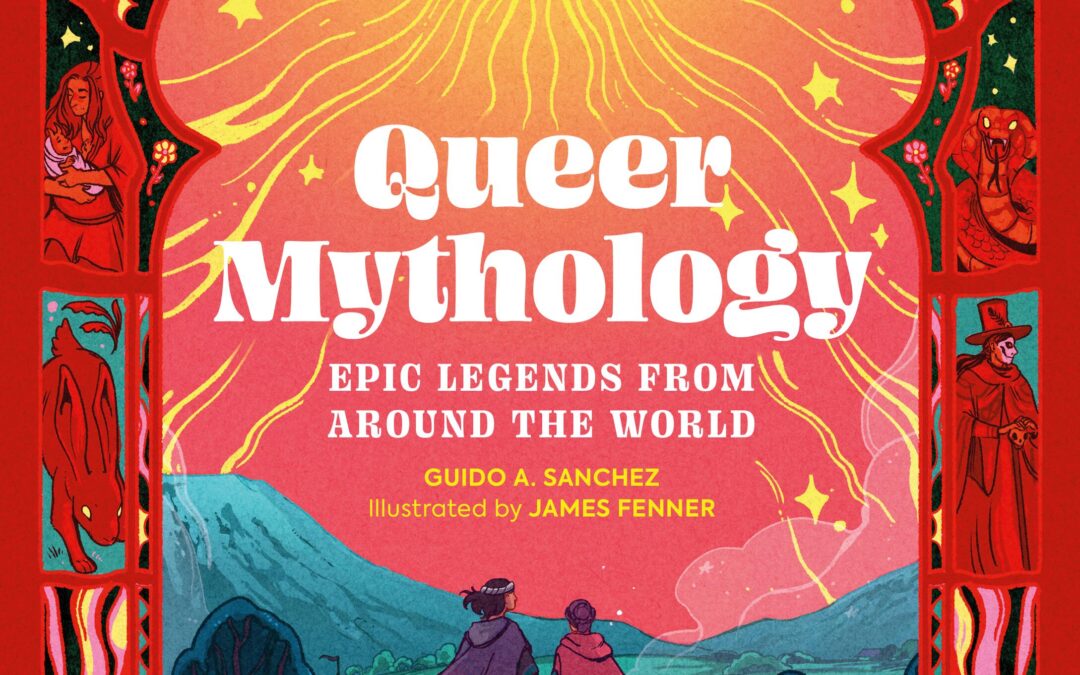
0 Comments